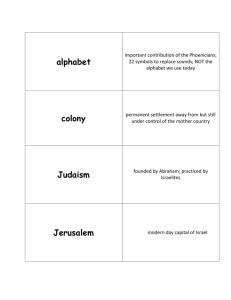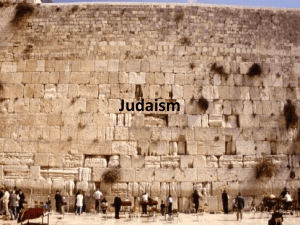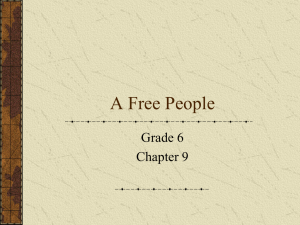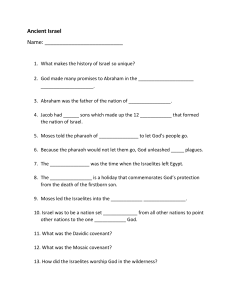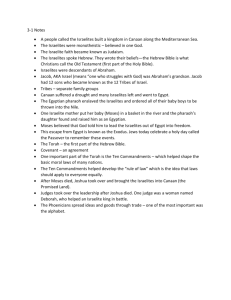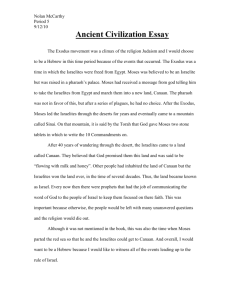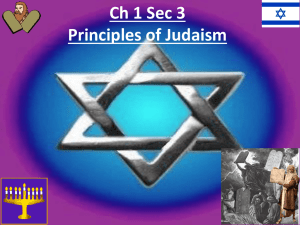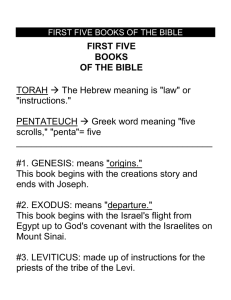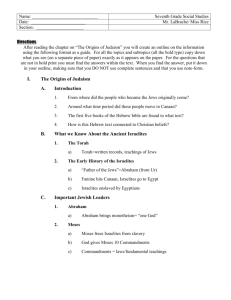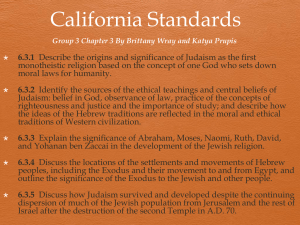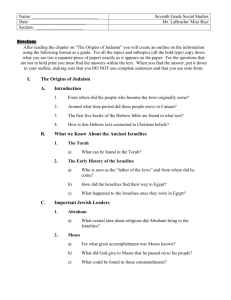Judaism SG
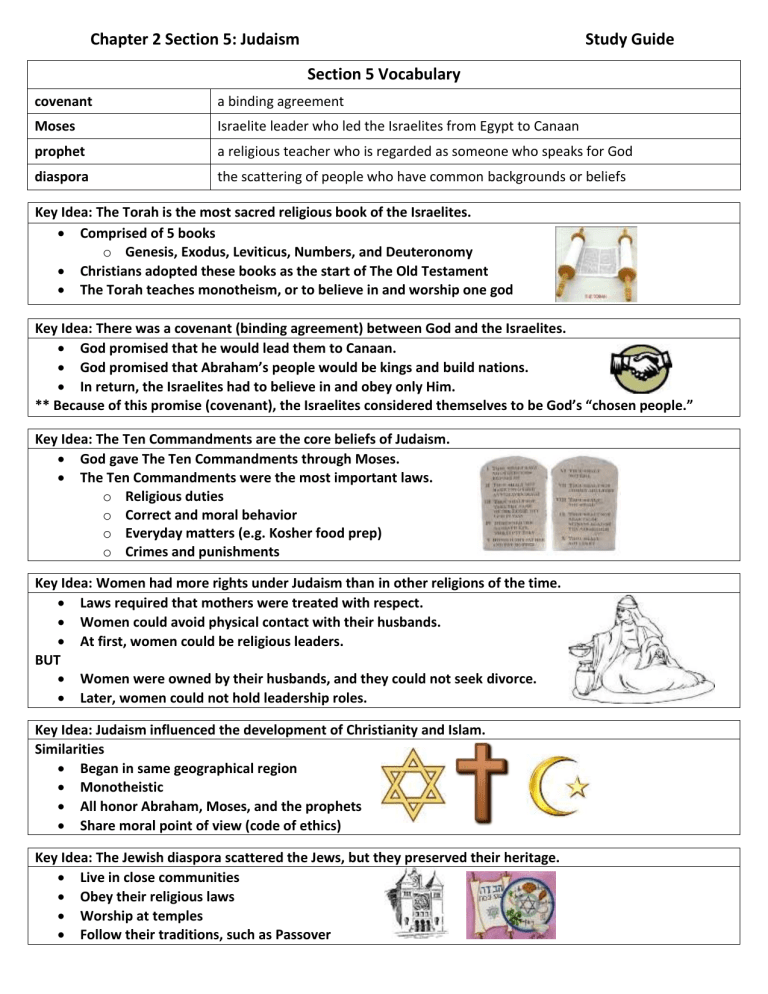
Chapter 2 Section 5: Judaism Study Guide
Section 5 Vocabulary covenant
Moses prophet a binding agreement
Israelite leader who led the Israelites from Egypt to Canaan a religious teacher who is regarded as someone who speaks for God diaspora the scattering of people who have common backgrounds or beliefs
Key Idea: The Torah is the most sacred religious book of the Israelites.
Comprised of 5 books o Genesis, Exodus, Leviticus, Numbers, and Deuteronomy
Christians adopted these books as the start of The Old Testament
The Torah teaches monotheism, or to believe in and worship one god
Key Idea: There was a covenant (binding agreement) between God and the Israelites.
God promised that he would lead them to Canaan.
God promised that Abraham’s people would be kings and build nations.
In return, the Israelites had to believe in and obey only Him.
** Because of this promise (covenant), the Israelites considered themselves to be God’s “chosen people.”
Key Idea: The Ten Commandments are the core beliefs of Judaism.
God gave The Ten Commandments through Moses.
The Ten Commandments were the most important laws. o Religious duties o Correct and moral behavior o Everyday matters (e.g. Kosher food prep) o Crimes and punishments
Key Idea: Women had more rights under Judaism than in other religions of the time.
Laws required that mothers were treated with respect.
Women could avoid physical contact with their husbands.
At first, women could be religious leaders.
BUT
Women were owned by their husbands, and they could not seek divorce.
Later, women could not hold leadership roles.
Key Idea: Judaism influenced the development of Christianity and Islam.
Similarities
Began in same geographical region
Monotheistic
All honor Abraham, Moses, and the prophets
Share moral point of view (code of ethics)
Key Idea: The Jewish diaspora scattered the Jews, but they preserved their heritage.
Live in close communities
Obey their religious laws
Worship at temples
Follow their traditions, such as Passover
